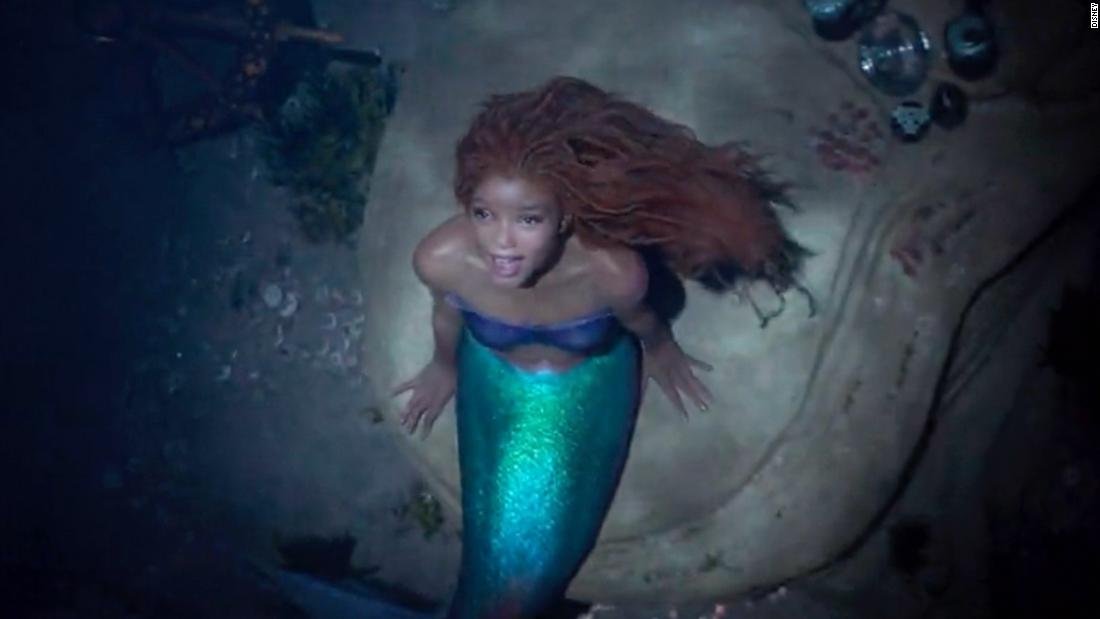Why I’m Out on Disney Live-Action Remakes
Ken Jones, OnScreen Blog Chief Film Critic
The Little Mermaid is releasing at the end of May, and I am not interested in seeing it. The reason is not that Disney is a “woke” company (whatever that means) or even remotely because they cast a person of color as Ariel for this movie.
The truth is that I have no genuine interest in seeing any more Disney live-action remakes, and frankly, I haven’t in some time. Disney has soured me on the live-action remakes of their animated classics catalog.
The history of cinema is replete with remakes and adaptations of classic and foreign films. Hollywood seems to remake ‘A Star Is Born’ every 20 to 40 years. Several Hollywood Westerns were inspired by a broad swath of Japanese samurai films (but also, specifically, by Akira Kurosawa).
While remakes are nothing new for Hollywood, they are relatively new for Disney.
Setting aside the 90s 101 Dalmatians movies, an outlier, Disney’s first started doing remakes in earnest in 2010 with Alice in Wonderland. In 2014, they released ‘Maleficent’, which was more of a Wicked-esque reinterpretation of Sleeping Beauty.
It was followed by Cinderella and The Jungle Book, which in my opinion, are actually improvements on the original Disney animated classics. They were followed by Beauty and the Beast, Aladdin, Dumbo, and The Lion King theatrically, and then several more received direct-to-streaming releases on Disney+.
Generally speaking, there are a lot of reasons that movies get remakes. While none of them are entirely altruistic and for purely artistic reasons, on the more positive side of things, they can be used for putting a fresh spin or unique take on a familiar story.
Updating the story for modern audiences is often a reason given. As much as I hate to admit it, black-and-white films, foreign language films, and films at a slower pace can be barriers for the general public. In some instances, an adaptation can be distinct enough to stand as its own thing (think ‘The Departed’ and ‘Infernal Affairs’) or improve upon the original on the rarest of occasions.
Maleficent was not a critical darling, but it at least offered a fresh take on Sleeping Beauty by telling the story from the perspective of the tale's antagonist. Cruella served as an origin story for 101 Dalmatians. They brought something new to the table, even if they were not improving upon the source material.
I hold Cinderella and The Jungle Book in pretty high regard. Both movies clock in at under 80 minutes; they’re classic kids’ movies, but they’re slight. Cinderella expanded beautifully on the story, with its central theme being “have courage and be kind” and how Cinderella lives this because she loves her parents, showing love to the people who mean her harm. The movie contrasts the reactions to grief and loss between Cinderella and the stepmother, who becomes bitter because of her experiences.
Expansion of the story became less and less a thing with each subsequent remake, though, and morphed into padding out the movie, with Beauty and the Beast being the most egregious example, clocking in at 129 minutes, 45 minutes longer than the 1991 classic.
As I said earlier, remakes get made for various reasons, but they should all have a reason for existing. They should bring something to the table. They should have a purpose beyond, “Well, we did this for that other movie, so let’s keep going through our catalog.”
A lesson that Hollywood will never seem to learn is that just because you can does not mean that you should. Disney hit a real hot streak in the late-80s to the mid-90s. Those movies are modern classics for a reason; you’re not improving on them no matter how good your film is. The animated ‘Beauty and the Beast’ was a Best Picture Oscar nominee for crying out loud, which rarely happens with animated films. Will Smith, no matter his talent as an actor, is not Robin Williams, who is The Genie.
It's also not like these animated films feel dated because of their animation. Even the oldest Walt Disney Studios animated features hold up as we approach Snow White and the Seven Dwarfs being 85+ years old. In many remakes, particularly the ones with talking animals, we exchange hand-drawn animation for CGI animation. They look more life-like but lack the classic films' vibrancy.
While I haven’t seen The Little Mermaid, complaints about the trailer and reviews for the film have used words like “dark” and “murky” to describe the picture quality.
The Little Mermaid will likely be a big box office smash. As of this writing, it has a 71% rating on Rotten Tomatoes after 78 reviews, a score similar to Beauty and the Beast. It’s not enough to compel me to the theater to see it. And unless I am blown away by the reviews for future Disney live-action remakes, I will not make time for them.
Disney has made a few of these that showed promise and gave me hope for these adaptations' potential, but that potential has largely been squandered to this point.
Disney has plans for a live-action (among others) Snow White, Lilo & Stitch, Bambi, and, perhaps most inexplicably, Moana, which is not even a decade old.
Again, what is the point? What purpose do these remakes serve other than being transparent cash grabs?
We should want better.
Follow Ken Jones on Twitter @kenjones81 and OnScreen Blog on Twitter @onscreenblog
